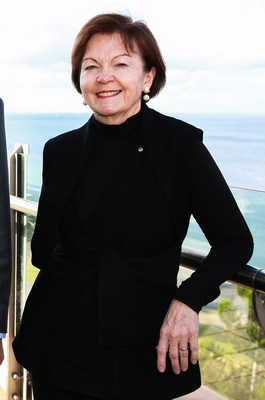“World-leading” Geelong research will develop artificial intelligence systems amid fears the technology is a threat to humanity.
Deakin University announced this week that Geelong would co-host a $20 million Applied Intelligence Institute as part of Deakin’s efforts to “drive the digital frontier”.
The institute, A2I2, would work on AI systems and tools to “benefit industry and society by driving economic growth and job creation”, Deakin said.
A2I2 would become Australia’s “go-to institute for innovative AI research for government and industry”, Deakin vice-chancellor Professor Jane den Hollander said.
“Big data analysis is described as the ‘new oil’ for its ability to create innovative and valuable solutions to the challenges facing industry, government and communities, and artificial intelligence is key to unlocking big data’s full potential,” Prof den Hollander said.
“Deakin’s Applied Artificial Intelligence Institute will allow the university to leverage our existing strengths to support research and the practical application of AI, providing a range of transformational benefits in fields diverse as health, manufacturing, finance, and defence.
“Backed by Deakin’s proven strength in commercialising research and working in partnership with industry, A2I2 will support the development of innovative new products and human-in-the-loop solutions that create jobs and drive economic growth.”
The institute would be co-located at Deakin’s Melbourne and Geelong campuses, Prof den Hollander said.
The university’s existing Pattern Recognition and Data Analytics (PRaDA) Strategic Research Centre and Deakin Software and Technology Innovation Lab (DSTIL) would form “the core” of A2I2.
“This new Institute builds upon PRaDA and DSTIL’s successes, such as research into applying machine-learning to detect mental illness and the design of stronger and lighter aluminium alloys, exemplifying how Deakin is driving the digital frontier,” Prof den Hollander said.
“Research required for future advances in AI needs to be truly cross disciplinary, which is why A2I2 will bring together skills and strengths from across Deakin and cover all aspects of AI research and development from fundamental science to translation and commercialisation.”
Deakin has appointed as institute co-directors PRaDA director Professor Svetha Venkatesh and DSTIL director Professor Kon Mouzakis.
An advisory board “featuring industry leaders” would help oversee the institute, Deakin said.
Some of the world’s leading technology experts have issued numerous warnings in recent years about the threat of AI overtaking mankind.
Figures such as Stephen Hawking and Elon Musk have raised concerns ranging from the loss of human control over autonomous military weapons through to the hackers taking advantage of the technology.
AI “is the biggest threat we face as a civilisation”, Mr Musk has warned.
Mr Hawking has told the BBC that “the development of full artificial intelligence could spell the end of the human race”.
However, AI proponents have claimed it could be one of technology’s greatest benefits for mankind, solving problems and devising systems too complex for the human mind.
Microsoft’s Bill Gates and Facebook’s Mark Zuckerberg have both supported the development of AI, criticising Mr Musk in particular for “alarmism” and hyping “the so-called control problem”.
“I am really optimistic (about AI),“ Mr Zuckerberg told the Wall Street Journal in September.
“People who are naysayers and try to drum up these doomsday scenarios, I just, I don’t understand it. It’s really negative and in some ways I actually think it is pretty irresponsible.”
Get the latest news to your email inbox FREE!
REGISTER






